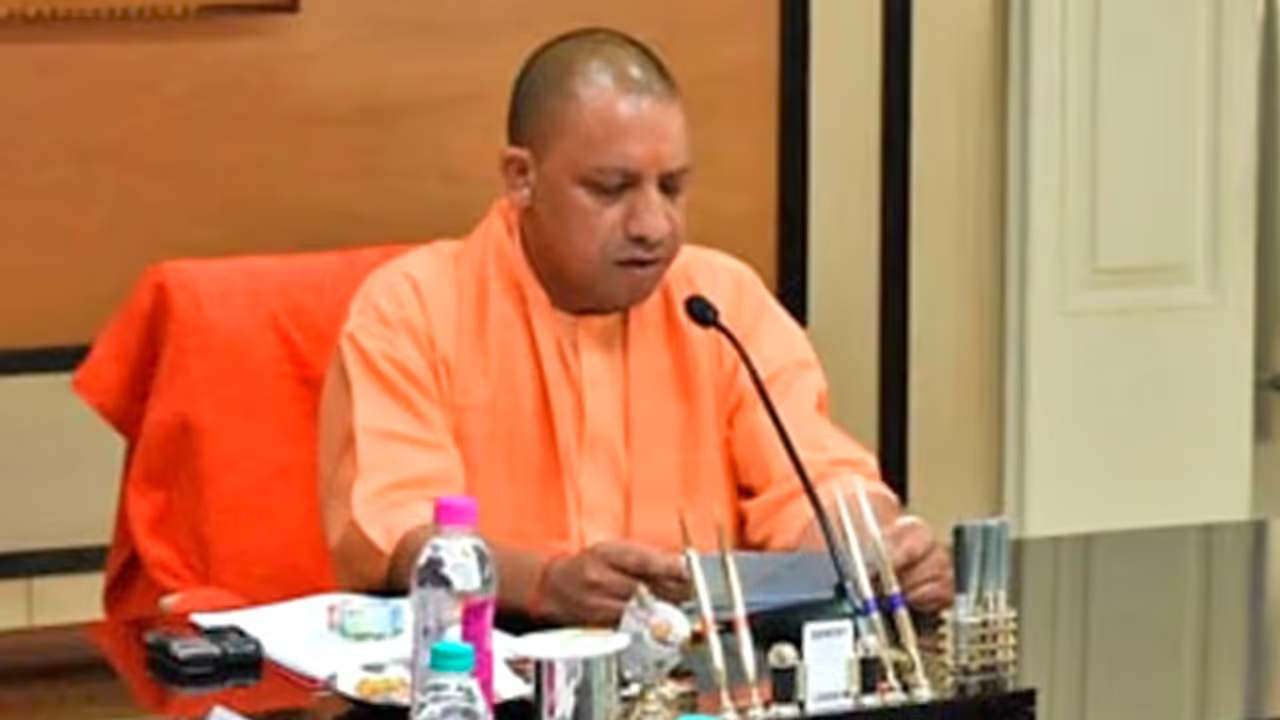The Yogi Adityanath-led government in Uttar Pradesh has launched the 'Mukhyamantri Yuva Udyami Vikas Abhiyan' to promote self-employment among the youth. Approved during a Cabinet meeting, the initiative aims to leverage the potential of young entrepreneurs and strengthen the state's economy by supporting the Micro, Small, and Medium Enterprises (MSME) sector.
In a major step toward empowering the youth of Uttar Pradesh, the Yogi government has decided to implement the 'Mukhyamantri Yuva Udyami Vikas Abhiyan' to create self-employment opportunities. The scheme, which aims to harness the potential of the state's youth, was approved during a Cabinet meeting chaired by Chief Minister Yogi Adityanath on Tuesday.

Recognizing the pivotal role of the Micro, Small, and Medium Enterprises (MSME) sector in the state's economy, the new initiative seeks to provide support and opportunities for young entrepreneurs to thrive. The government believes this will not only create jobs but also stimulate economic growth across Uttar Pradesh.
In addition to this, a total of 25 proposals were approved during the cabinet meeting.
Rakesh Sachan, Minister of Micro, Small and Medium Enterprises, said that under this scheme, 10 lakh micro units will be set up in the next 10 years. This initiative will provide financial help to 1 lakh educated and trained youth in Uttar Pradesh each year. The main goal is to create jobs in both rural and urban areas, encouraging young people to start their own businesses.
To apply for this scheme, applicants must have at least passed class eight, but those who have completed intermediate (class 12) will be given preference.
Applicants must also be trained under government schemes like Vishwakarma Shram Samman Yojana, One District One Product Scheme, and other skill development programs run by the Uttar Pradesh Skill Development Mission.
He further informed that under this scheme, grant on loan will be provided on projects up to Rs 5 lakh in micro enterprises and service sector. For projects costing up to Rs 10 lakh, the rest of the funds must be arranged by the beneficary.
General category beneficiaries need to contribute 15% of the project cost, OBC beneficiaries 12.5%, and Scheduled Caste, Tribe, and Divyangjan beneficiaries 10%.
Special provisions have also been made in the scheme for the beneficiaries of Bundelkhand, Purvanchal and aspirational districts such as Chitrakoot, Chandauli, Sonbhadra, Fatehpur, Balrampur, Siddharthnagar, Shravasti, and Bahraich.
Under the scheme, beneficiaries from these regions will be required to contribute only 10% of the total project cost.
Additionally, the scheme offers 100% interest subsidy on loans for a period of four years, along with a six-month moratorium period from the loan disbursement date.
Youth who benefit from the scheme for the first time will also be eligible for further assistance in the second phase, with financial support available for projects up to Rs 10 lakh.
The scheme also promotes digital transactions, offering an additional grant of Rs 1 per transaction, with a maximum benefit of Rs 2,000 per year.
UP govt approves UP Agri Scheme to boost farmers' income
In a bid to increase farmers' income, the Yogi government has approved the UP Agri Scheme, a significant initiative aimed at enhancing agricultural productivity across various regions of Uttar Pradesh.
Agriculture Minister Surya Pratap Shahi highlighted that UP has nine climatic zones, with lower productivity in regions like Bundelkhand and Northeast compared to Western UP. The scheme aims to address these disparities by promoting innovation and fostering economic growth in agriculture.
The project will be implemented across 28 districts, including Jhansi, Chitrakoot, Gorakhpur, Varanasi, and others from the Vindhya, Azamgarh, Basti, and Devipatan divisions.
Notably, 7 out of the 8 aspirational districts identified by the Government of India will benefit from the scheme, covering 50 out of 100 aspirational blocks. This comprehensive initiative will involve farmers, agricultural organizations, and industries in projects related to food processing and other sectors.
With an overall budget of Rs 4,000 crore, the project is set to be completed over six years.
The Yogi government has already allocated Rs 200 crore in this year's budget, and a total of Rs 1,166 crore will be contributed by the state.
The World Bank will invest Rs 2,737 crore in the project, with a 35-year loan repayment period at an interest rate of 1.23%.
UP Higher Education Promotion Policy, 2024, approved to improve quality education
To strengthen higher education and ensure quality learning opportunities for youth in Uttar Pradesh, the Yogi government has approved the 'Uttar Pradesh Higher Education Promotion Policy, 2024.
Higher Education Minister Yogendra Upadhyay said that this policy will encourage private investment to meet the growing demand for higher education in the state. Through this, students will get an opportunity to get high quality education in the state itself.
The policy will also boost employment, both direct and indirect, through the establishment of private universities.
Sponsoring bodies will benefit from incentives such as stamp duty exemptions, capital subsidies, and other special provisions.
Additionally, universities ranked in the top 50 of the National Institutional Ranking Framework (NIRF) will receive extra incentives.
As part of this initiative, the cabinet approved the establishment of two new private universities—KD University in Mathura, proposed by the Rajiv Memorial Academic Welfare Society, and Vidya University in Meerut, proposed by Vidya Bal Mandali on 42.755 acres of land.
